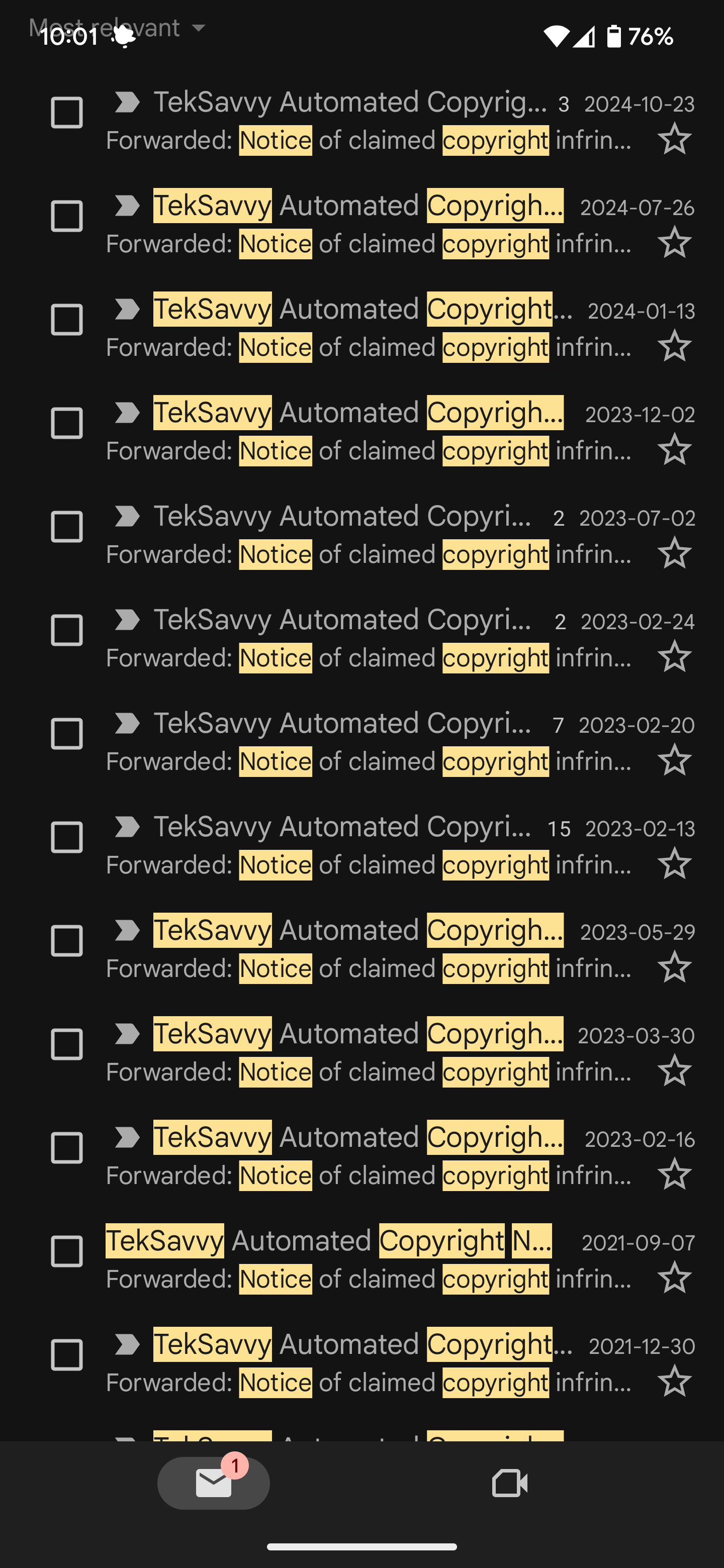OP said it was to notify you when an alarm went off, not when it ran out of batteries.
bjorney
- 0 Posts
- 374 Comments
You seem content to entirely gloss over the issue, which isn’t the pros/cons of a particular writing style, it’s that the maintainer could have said ANY of the things you said, but he didn’t
If I was the maintainer, I too would probably reject the PR because it didn’t remove the gender entirely.
Cool, but that isn’t what happened here. The PR was closed immediately because the maintainer considered using gender neutral pronouns “personal politics” - he had ample opportunity to clarify his stance, or simply comment ‘resubmit in passive voice’, but he didn’t. Clearly the problem wasn’t the active voice, it was the summary of the change, because when that exact same PR was re-submitted much later with a commit message of ‘Fix some minor ESL grammar issues’, it was accepted with no discussion
As an aside, I absolutely disagree with the use of passive voice. It’s more verbose, and harder for the reader to comprehend. It’s why every style guide (APA, Chicago, IEEE, etc) recommends sticking to active voice, especially in the context of ‘doing things’.
If goes against established norms here
What’s the established norm here. All people compiling software by source are male?
he said politically motivated changes aren’t welcome
What’s politically motivated about changing “he” to “they”. As you said, gender doesn’t apply here, so the neutral word is literally preferable.
Wouldn’t there be an argument for a kettle, where as you heat it some heat (including steam) is lost through the top?
Yes, but evaporative cooling happens in a microwave too.
The microwave has an enclosed cavity that captures this loss and so reduces future loss as the water heats.
Microwaves don’t have an airtight seal. If they did you would be able to blow the door off if you heated a large enough bowl of water.
Also, the kettle heats a certain quantity water of which only some is used. A mug in the microwave would heat only the water you use.
You don’t have to fill kettles up to the top to use them
Yes, I’m sure that PR would have been accepted instead /s
But you’re right, it doesn’t matter at all, the reasonable thing to do would have been for the guy to spend 3 seconds clicking the accept and merge button, or 6 seconds making your change. instead he wrote a comment stating that inclusive language has no place in his project
Microwaves don’t generate heat directly, they produce ionizing radiation, only some of which gets absorbed by the thing you are heating. Energy is also lost as heat in the coils, and from spinning the plate. Microwaves are only between 50-75% efficient
https://github.com/SerenityOS/serenity/pull/6814#issuecomment-830793992
Really?
This screams “women not wanted” to me

 5·15 days ago
5·15 days agoit’s literally easier to do on a technical level
I wouldn’t go that far. It’s still trivially easy, and arguably best practice, but it’s certainly more complicated than issuing an in-place update
 2·16 days ago
2·16 days agoIt’s been around for a long time. It was very popular back in like 2017, but fell off because it’s value proposition was “we are a shitty fork of the Litecoin codebase with a few constants changed (which was in itself a shitty fork of the Bitcoin codebase with a few constants changed) and no other meaningful changes”
 20·16 days ago
20·16 days agoDo your research.
https://www.coinlore.com/coin/digibyte/richlist
1000 people hold 66% of all digibyte in existence lol

 20·17 days ago
20·17 days agoIf the code doesn’t change, the resulting docker image will have the same hash, and a new image won’t be created
https://github.com/jackett/jackett/releases
Jackett is literally just releasing a new version every day
and I’ve encountered zero bugs so far
This is my only complaint - it crashes a lot for me

 10·1 month ago
10·1 month agoThe content of the email is very laissez-faire, e.g. "we legally have to send these ¯\_(ツ)_/¯ "

 1661·1 month ago
1661·1 month agoI collect these like pokemon 🙃

What’s confusing about it? It’s the amount of flour that fills a 236ml cup. It’s no different than measuring 1L of water
You may say “yeah well it depends on how finely ground the flour is or how tightly packed the broccoli is” and the answer is “it either doesn’t matter or it’s a bad recipe”
Dry ingredients by weight isn’t a metric exclusive thing, it’s an “accurate recipe” thing. Plenty of American recipes call for ounces and pounds. Cups are also a unit of volume, so 1c of milk occupies the same volume as 1c of water even though their masses are different (at a given temperature; which is why it’s better to use weight for liquid ingredients as well)
The confusion is when you have no idea whether they are calling for 28.4ml, 29.5ml or 28.3g when they say “ounce”
Cups are ~235ml regardless of wet or dry. They are one of the sane-er measurements
You may be confusing your frustration with the ounce, which may refer to:
- avoirdupois ounce, used for mass in most cases
- Troy ounce, used for mass when referring to precious metals
- the imperial fluid ounce, used for volume sometimes
- the us customary fluid ounce, used for volume sometimes
- the us food labelling ounce, used for volume like the customary fluid ounce, but rounded to a nice number of milliliters
 49·2 months ago
49·2 months agoI’ve only ever heard this non-ironically from these types





Not an American, but basically decide how much risk you want to take on - then depending on that answer set aside money (0-40%) for safe investments - things like bonds (guaranteed returns) or potentially gold (lower volatility). The rest goes into a 80/20 (or 60/40, or 90/10, no one can say what’s best) split between domestic and international index funds. Things like the S&P500, Dow, and US whole market index, and then some into EU, Asia/Oceana, and emerging market index funds.